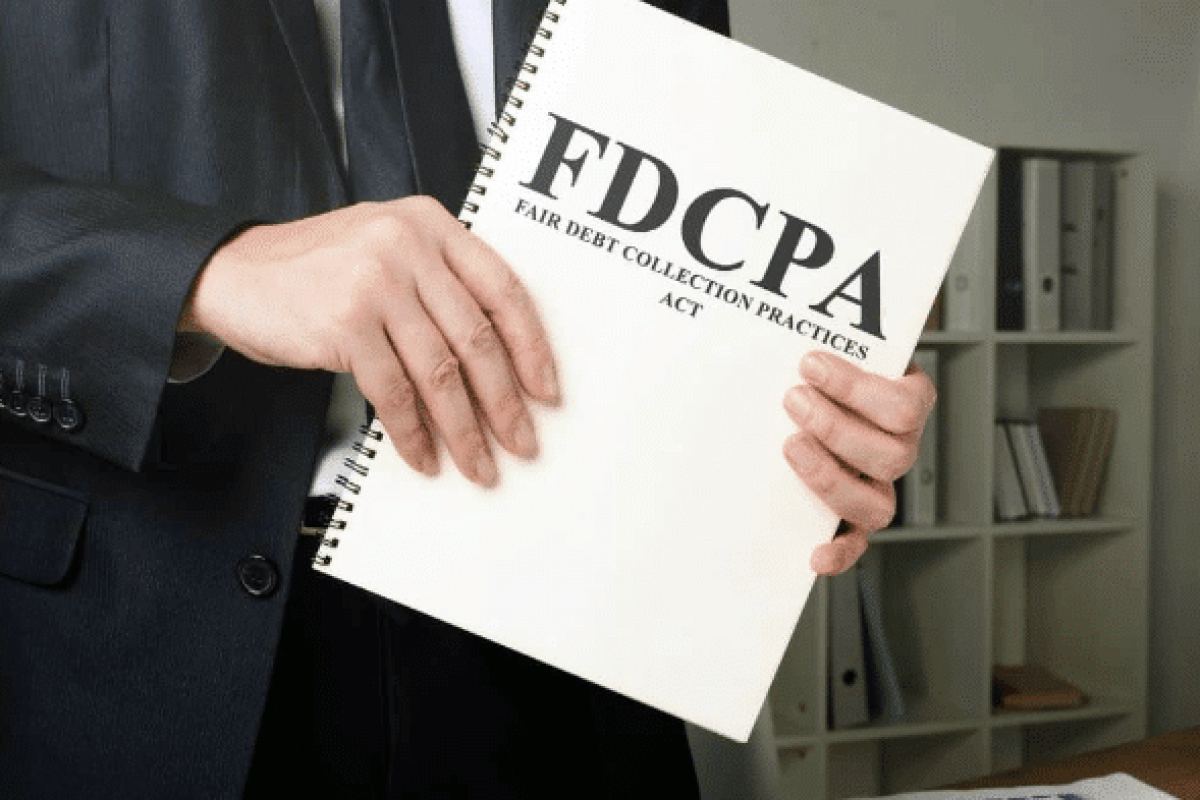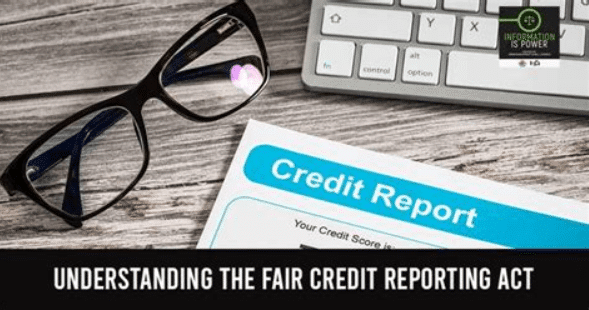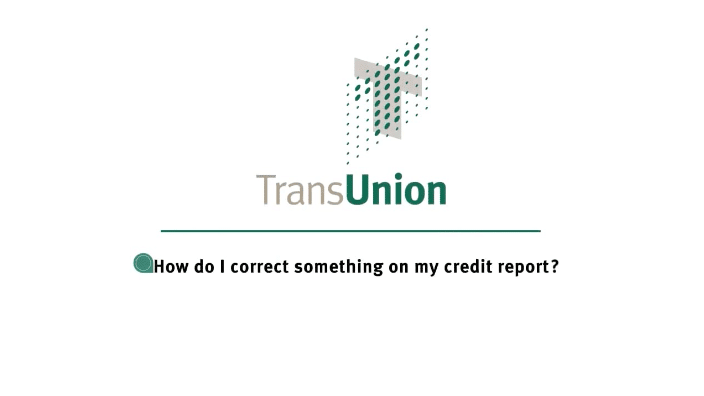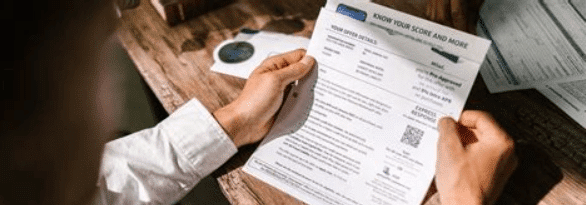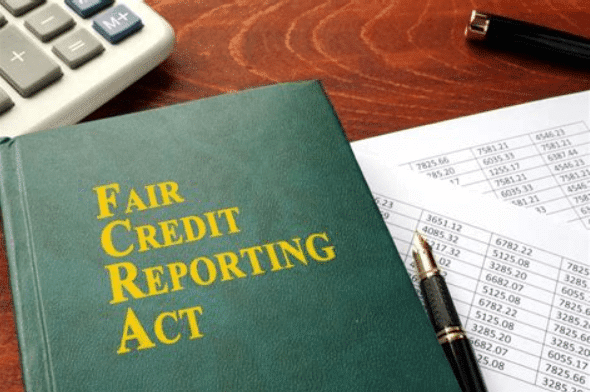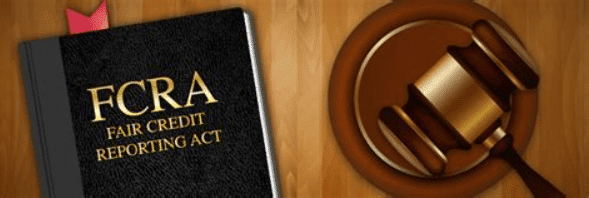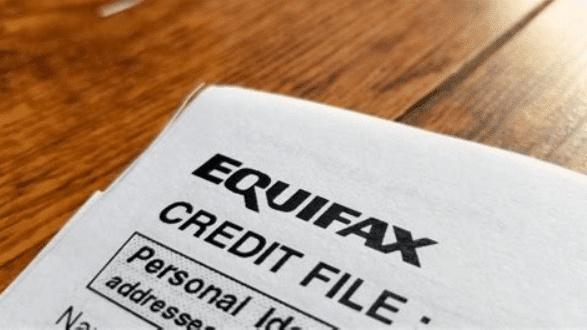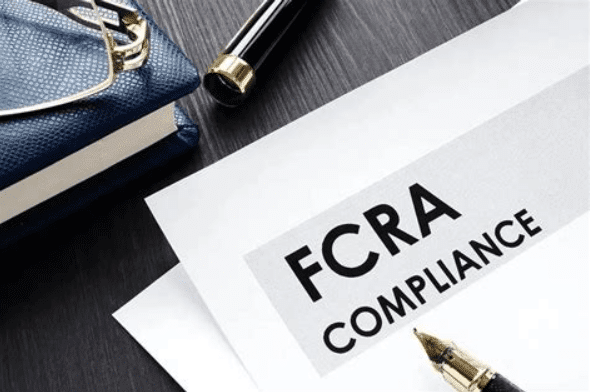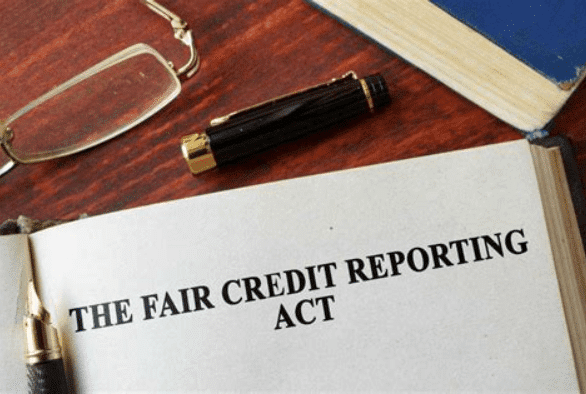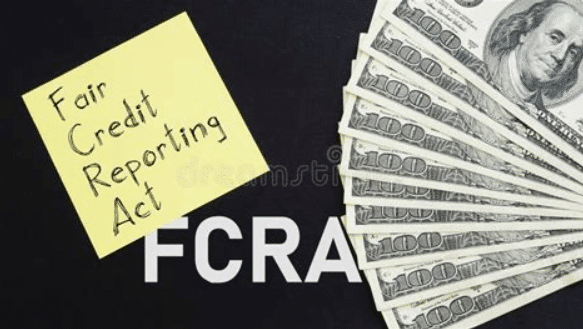15 USC 1692, otherwise known as the Fair Debt Collection Practices Act (FDCPA), establishes regulations protecting consumers from abusive debt collectors. ZumaZip.com explains everything you need to know about the FDCPA so you can protect yourself from noncompliant debt collectors.
Experiencing communication from debt collectors via letters or phone calls can indeed be disruptive and frustrating. Letters often demand prompt payment with limited information provided regarding the underlying debt. Similarly, receiving phone calls from debt collectors can disrupt one’s daily activities and leave a negative impact on mood and productivity.
Fortunately, consumers have protections against debt collectors under 15 USC 1692, known as the Fair Debt Collections Practices Act (FDCPA). Congress enacted the FDCPA in 1977, and it has been amended several times since then.
The primary objective of the Fair Debt Collection Practices Act (FDCPA) is to safeguard consumers from abusive and harassing tactics employed by debt collectors, which can have detrimental effects on their mental and physical well-being. By familiarizing yourself with your rights under the FDCPA, you can effectively recognize instances where a debt collector’s conduct exceeds permissible boundaries and take necessary measures to safeguard yourself from such undue harassment.
Sued by a debt collector? Use ZumaZip Settle to settle the debt for good.
Debt collectors can’t tell others about your debt
Debt collectors frequently rely on telephone communication to reach consumers with outstanding debts. However, they are bound by stringent regulations when interacting with individuals other than the debtor.
When contacting someone who answers the call but is not the intended debtor, a debt collector is required to identify themselves by name and request to speak specifically with the individual who owes the debt. Disclosure of the debt collector’s employer’s name is only permissible upon explicit inquiry from the recipient. Additionally, debt collectors are prohibited from explicitly stating that a consumer owes a debt during these interactions.
If the contacted individual is unable to provide information regarding the debtor’s whereabouts, the debt collector is barred from making further contact with them. However, if the debt collector later becomes aware of circumstances indicating that the individual may possess relevant information, they may reach out to them again.
Debt collectors are restricted from communicating via postcard, as this method could expose the debtor’s financial situation to unintended parties. Furthermore, they must refrain from using language or symbols on the envelope that could indicate the nature of the enclosed communication.
In the event that a consumer engages legal representation to address their debts, debt collectors are obliged to cease all communication with the consumer directly and instead direct all correspondence to the consumer’s attorney’s office.
Debt collectors must follow strict rules when communicating with you
Debt collectors are mandated to maintain a respectful demeanor when communicating with you via phone. This includes refraining from calling you during unreasonable hours, such as before 8 a.m. or after 9 p.m. in your respective time zone. While debt collectors are permitted to contact you at your workplace, they are obliged to cease such calls if requested to do so by your employer.
Moreover, debt collectors are strictly prohibited from divulging information about your debt to any third parties. This encompasses refraining from discussing your debt with relatives, friends, or colleagues, and extends to not involving minors, such as your teenage daughter, in debt-related communications. The permissible entities with whom debt collectors may discuss your debt are limited to yourself, your legal representative, the original creditor, and consumer reporting agencies.
You possess the right to request that a debt collector cease communication with you by submitting a written notice to that effect. Upon receiving your written request, the debt collector is barred from resuming communication with you, save for informing you of its decision to terminate collection efforts or its intent to pursue a specific legal recourse, such as initiating a debt lawsuit.
Is a debt collector harassing you for money? Make a debt collector validate your debt with our Debt Validation Letter.
Debt collectors can’t harass or abuse you
Under 15 USC 1692, debt collectors cannot take actions that harass or abuse you. The law prohibits all of the following activities:
- Threatening to use violence or other means to harm you physically, hurt your reputation, or damage your property.
- Using obscene language to abuse or harm you.
- Publishing your name in a list of people who don’t pay debts.
- Advertising your debt for sale to convince you to repay it.
- Calling you continuously throughout the day.
- Failing to identify themselves when they contact you.
Let’s consider an example to see what an abusive debt collector might act like.
Example: In the scenario described, Tough Dog Collections has egregiously infringed upon Sally’s rights as outlined by the Fair Debt Collection Practices Act (FDCPA). By subjecting her to incessant and harassing phone calls, utilizing threatening and deceptive tactics in their written correspondence, and publicly disclosing her debt status in her neighborhood newsletter, Tough Dog Collections has breached multiple provisions of the FDCPA.
Sally is well within her rights to file a formal complaint against Tough Dog Collections for their unlawful conduct. Additionally, she may pursue legal recourse to seek damages as compensation for the emotional distress and harassment endured as a result of their actions.
In our example, Tough Dog Collections has seriously violated Sally’s rights under the FDCPA. Sally can file a complaint against Tough Dog Collections and seek damages in compensation for its abuse and harassment.
Debt collectors can’t use false or deceptive practices to collect an obligation
The Fair Debt Collection Practices Act (FDCPA) expressly prohibits debt collectors from assuming false identities or misrepresenting themselves during communications with debtors. This includes impersonating individuals such as family members, former acquaintances, law enforcement officers, or legal representatives. Additionally, debt collectors are prohibited from making threats or assertions regarding actions they lack the authority to undertake, such as seizing property or issuing arrest warrants.
Furthermore, the FDCPA mandates that debt collectors refrain from engaging in deceptive tactics to coerce debt repayment. For example, they cannot falsely claim imminent wage garnishment without following proper legal procedures to obtain a garnishment order.
Moreover, under the FDCPA, debt collectors are prohibited from sending correspondence that resembles official legal documents, such as summonses or judgments, when in fact they are not. Should a debtor receive such misleading correspondence, it constitutes a violation of the FDCPA.
15 USC 1692 protects you from unfair debt collection activities
If a debt collector persists in contacting you despite your requests for cessation, or if you believe their actions are adversely affecting your mental well-being, there is a possibility that they are in violation of the regulations outlined in 15 USC 1692. In such instances, you retain the option to lodge a formal complaint against the debt collector with the Federal Trade Commission (FTC) or pursue legal recourse through litigation.
It is important to note that violations of this nature entail significant penalties, with fines potentially reaching up to $1,000 per infraction. Therefore, it is imperative not to hesitate in asserting your rights in such matters. By taking action, you not only safeguard your own interests but also potentially prevent others from enduring similar circumstances.
Are you facing a debt lawsuit from an abusive debt collector? Use ZumaZip’s Debt Answer template to defend yourself.
What is ZumaZip?
ZumaZip is a convenient solution designed to streamline your response to a debt collection lawsuit. Here’s a breakdown of what you can expect when you use ZumaZip:
Firstly, you’ll access our user-friendly web application, which guides you through the process step by step. You’ll be prompted to answer a series of questions related to your specific situation. Once you’ve completed the questionnaire, you have the option to either print out the finalized forms and mail them to the appropriate courts yourself, or you can opt to utilize ZumaZip’s services to file them on your behalf. Additionally, if you choose this option, an attorney will review your document for added peace of mind.
If you’re seeking guidance on how to effectively respond to a debt collection lawsuit, ZumaZip can provide the assistance you need. Feel free to explore our FAQs for more information on what ZumaZip has to offer.
What if I haven’t been sued yet?
If you’ve only received a collections notice, but not a lawsuit, the best way to respond is with a Debt Validation Letter. When a debt collector contacts you in any way, whether it’s by phone or mail, you can respond by formally requesting a debt validation with a Debt Validation Letter . This letter notifies the collector that you dispute the debt and forces them to provide proof you owe the debt. They can’t call you or continue collecting until they provide validation of the debt. This flowchart shows how you can use a Debt Validation Letter to win.
Get started with a Debt Validation Letter here.
How to Answer a Summons for debt collection in all 50 states
Here’s a list of guides on how to respond to a debt collection lawsuit in each state:
- Alabama
- Alaska
- Arizona
- Arkansas
- California
- Colorado
- Connecticut
- Delaware
- Florida
- Georgia
- Hawaii
- Idaho
- Illinois
- Indiana
- Iowa
- Kansas
- Kentucky
- Louisiana
- Maine
- Maryland
- Massachusetts
- Michigan
- Minnesota
- Mississippi
- Missouri
- Montana
- Nebraska
- Nevada
- New Hampshire
- New Jersey
- New Mexico
- New York
- North Carolina
- North Dakota
- Ohio
- Oklahoma
- Oregon
- Pennsylvania
- Rhode Island
- South Carolina
- South Dakota
- Tennessee
- Texas
- Utah
- Vermont; Vermont (Small Claims court)
- Virginia
- Washington
- West Virginia
- Wisconsin
- Wyoming
Guides on how to beat every debt collector
Hey there! Facing off against a debt collector can feel like a daunting challenge, but fear not! We’re here to help you navigate through it all with our handy guides designed to assist you in beating every debt collector you encounter. Whether you’re facing a new lawsuit or dealing with a persistent collector, we’ve got your back. Stay positive, stay informed, and let’s tackle this together!
- Absolute Resolutions Investments LLC
- Accredited Collection Services
- Alliance One
- Amcol Clmbia
- American Recovery Service
- Asset Acceptance LLC
- Asset Recovery Solutions
- Associated Credit Services
- Autovest LLC
- Cach LLC
- Cavalry SPV I LLC
- Cerastes LLC
- Colinfobur
- Covington Credit
- Crown Asset Management
- CTC Debt Collector
- Cypress Financial Recoveries
- Delanor Kemper & Associates
- Eagle Loan of Ohio
- Educap
- Estate Information Services
- FIA Card Services
- Forster & Garbus
- Freshview Solutions
- Fulton Friedman & Gullace LLP
- Harvest Credit Management
- Howard Lee Schiff
- Hudson & Keyse LLC
- Integras Capital Recovery LLC
- Javitch Block
- Jefferson Capital Systems LLC
- LVNV Funding
- Mannbracken
- Mariner Finance
- Medicredit
- Michael J Adams PC
- Michael J Scott
- Midland Funding LLC
- Mullooly, Jeffrey, Rooney & Flynn
- Mountain Land Collections
- MRS Associates
- National Collegiate Trust
- Nationstar Foreclosure
- Northstar Capital Acquisition
- NCEP LLC
- NRC Collection Agency
- OneMain Financial
- Palisades Collection LLC
- Pallida LLC
- Paragon Revenue Group
- Pinnacle Collections Agency
- PMAB LLC
- Portfolio Recovery Associates
- Provest Law
- PYOD LLC
- Reunion Student Loan Finance Corporation
- Revenue Group
- Regents and Associates
- RSIEH
- Salander Enterprises LLC
- Second Round Sub LLC
- Security Credit Services
- Sherman Financial Group
- Suttell and Hammer
- T-Mobile
- Transworld Systems
- Tulsa Teachers Credit Union
- UCB Collection
- Velo Law Office
- Velocity Investments
- Waypoint Resource Group
- Weinberg and Associates
- Wolpoff & Abramson
Settle your medical debt
Having a health challenge is stressful, but dealing medical debt on top of it is overwhelming. Here are some resources on how to manage medical debt.
- Am I Responsible for My Spouse’s Medical Debt?
- Do I Need a Lawyer for Medical Bills?
- Do I Need a Lawyer to Fight Medical Bill Debt?
- Does Bankruptcy Clear Medical Debt?
- How Much Do Collection Agencies Pay for Medical Debt?
- How to Find Medical Debt Forgiveness Programs
- Is There a Statute of Limitations on Medical Bills?
- Medical Debt Statute of Limitations by State
- Summoned to Court for Medical Bills — What Do I Do?
- Summoned to Court for Medical Bills? What to Do Next
Stop calls from Debt Collectors
Do you keep getting calls from an unknown number, only to realize that it’s a debt collector on the other line? If you’ve been called by any of the following numbers, chances are you have collectors coming after you, and we’ll tell you how to stop them.
- 800-390-7584
- 800-289-8004
- 800-955-6600
- 877-366-0169
- 877-591-0747
- 800-278-2420
- 800-604-0064
- 800-846-6406
- 877-317-0948
- 888-899-4332
- 888-912-7925
- 202-367-9070
- 502-267-7522
Other wage garnishment resources
- Bank Account Garnishment and Liens in Texas
- Can I Stop Wage Garnishment?
- Can My Wife’s Bank Account Be Garnished for My Debt?
- Can Payday Loans Garnish Your Wages?
- Can pensions be garnished?
- Can Private Disability Payments Be Garnished?
- Can Social Security Disability Be Garnished?
- Can They Garnish Your Wages for Credit Card Debt?
- Can You Stop a Garnishment Once It Starts?
- Guide to Garnishment Limits by State
- How Can I Stop Wage Garnishments Immediately?
- How Long Before a Creditor Can Garnish Wages?
- How Long Does It Take to Get Garnished Wages Back?
- How to Fight a Wage Garnishment
- How to Prevent Wage Garnishment
- How to Stop a Garnishment
- How to Stop Social Security Wage Garnishment
- How to Stop Wage Garnishment — Everything You Need to Know
- New York Garnishment Laws – Overview
- Ohio Garnishment Laws — What They Say
- Wage Garnishment Lawyer
- What Is Wage Garnishment?
Guides on Arbitration
If the thought of going to court stresses you out, you’re not alone. Many Americans who are sued for credit card debt utilize a Motion to Compel Arbitration to push their case out of court and into arbitration.
Below are some resources on how to use an arbitration clause to your advantage and win a debt lawsuit.
- How Arbitration Works
- How to Find an Arbitration Clause in Your Credit Agreement
- How to Make a Motion to Compel Arbitration
- How to Make a Motion to Compel Arbitration in Florida
- How to Make a Motion to Compel Arbitration Without an Attorney
- How Credit Card Arbitration Works
- Motion to Compel Arbitration in California
- Sample Motion to Compel Arbitration
Federal Debt Collection Laws Can Protect You
Knowing your rights makes it easier to stand up for your rights. Below, we’ve compiled all our articles on federal debt collection laws that protect you from unfair practices.
- 15 USC 1692 Explained
- Does the Fair Credit Reporting Act Work in Florida?
- FDCPA Violations List
- How to File an FDCPA Complaint Against Your Debt Collector (Ultimate Guide)
- How to Make a Fair Debt Collection Practices Act Demand Letter
- How to Submit a Transunion Dispute
- How to Submit an Equifax Dispute
- How to Submit an Experian Dispute
- What Debt Collectors Cannot Do — FDCPA Explained
- What Does Account Information Disputed by Consumer Meets FCRA Requirements Mean?
- What does “meets FCRA requirements” mean?
- What does FCRA stand for?
- What is the Consumer Credit Protection Act
Resolve Your Debt with Your Creditor
Some creditors, banks, and lenders have an internal collections department. If they come after you for a debt, ZumaZip can still help you respond and resolve the debt. Here’s a list of guides on how to resolve debt with different creditors.
- American Express; American Express – Debt Collection
- Bank of America
- Barclay
- Best Buy Credit Card
- Capital One
- Chase
- Credit One Bank
- Old Navy Credit Card
- PayPal Synchrony Card
- Regional Finance
- Retailers National Bank
- Reunion Student Loan Finance Corporation
- SYNCB/PPEXTR
- Synchrony Bank
- Synchrony Walmart Card
- Target National Bank
- Webbank
- Wells Fargo
- Can I Pay My Original Creditor Instead of a Debt Collection Agency?
- Can I Settle a Debt with the Original Creditor?
Check the Status of Your Court Case
Don’t have time to go to your local courthouse to check the status of your case? We’ve created a guide on how to check the status of your case in every state, complete with online search tools and court directories.
- Alabama Court Case Search—Find Your Lawsuit
- Alaska Court Case Search — Find Your Lawsuit
- Arizona Court Case Search – Find Your Lawsuit
- Arkansas Court Case Search — Find Your Lawsuit
- California Court Case Search- Find Your Lawsuit
- Colorado Court Case Search — Find Your Lawsuit
- Connecticut Case Lookup — Find Your Court Case
- Delaware Court Case Search — Find Your Lawsuit
- Florida Court Case Search — Find Your Lawsuit
- Georgia Court Case Search — Find Your Lawsuit
- Hawaii Court Case Search — Find Your Lawsuit
- Idaho Court Case Search – Find Your Lawsuit
- Illinois Court Case Search — Find Your Lawsuit
- Indiana Court Case Search — Find Your Lawsuit
- Iowa Court Case Search — Find Your Lawsuit
- Kansas Court Case Search — Find Your Lawsuit
- Kentucky Court Case Search — Find Your Lawsuit
- Louisiana Court Case Search — Find Your Lawsuit
- Maine Court Case Search — Find Your Lawsuit
- Maryland Court Case Search — Find Your Lawsuit
- Massachusetts Court Case Search — Find Your Lawsuit
- Michigan Court Case Search — Find Your Lawsuit
- Minnesota Court Case Search — Find Your Lawsuit
- Mississippi Court Case Search — Find Your Lawsuit
- Missouri Court Case Search — Find Your Lawsuit
- Montana Court Case Search — Find Your Lawsuit
- Nebraska Court Case Search — Find Your Lawsuit
- Nevada Court Case Search — Find Your Lawsuit
- New Hampshire Court Case Search — Find Your Lawsuit
- New Jersey Court Case Search—Find Your Lawsuit
- New Mexico Court Case Search – Find Your Lawsuit
- New York Case Search — Find Your Lawsuit
- North Carolina Court Case Search — Find Your Lawsuit
- North Dakota Court Case Search — Find Your Lawsuit
- Ohio Court Case Search — Find Your Lawsuit
- Oklahoma Court Case Search — Find Your Lawsuit
- Oregon Court Case Search — Find Your Lawsuit
- Pennsylvania Court Case Search — Find Your Lawsuit
- Rhode Island Court Case Search — Find Your Lawsuit
- South Carolina Court Case Search — Find Your Lawsuit
- South Dakota Court Case Search — Find Your Lawsuit
- Tennessee Court Case Search — Find Your Lawsuit
- Texas Court Case Search — Find Your Lawsuit
- Utah Court Case Search — Find Your Lawsuit
- Vermont Court Case Search — Find Your Lawsuit
- Virginia Court Case Search — Find Your Lawsuit
- Washington Court Case Search — Find Your Lawsuit
- West Virginia Court Case Search — Find Your Lawsuit
- Wisconsin Court Case Search — Find Your Lawsuit
- Wyoming Court Case Search — Find Your Lawsuit

